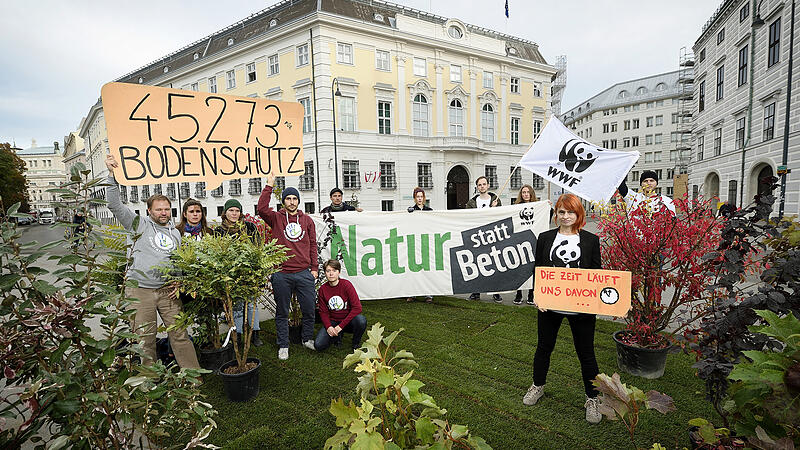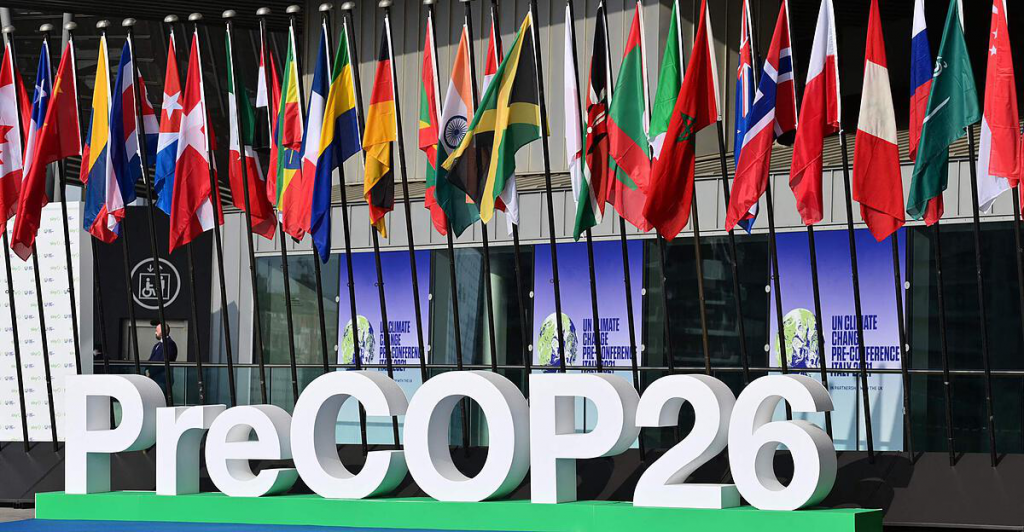Current climate plans will not be enough to limit global warming to 1.5 degrees and will have to be significantly improved. “It’s time to move from a leisurely stroll to a fast sprint,” said Johannes Wollmüller of Global 2000.
‘We’re going down three steps’
According to state-of-the-art technology, climate plans submitted by federal states will not achieve a 1.5 degree reduction – as stipulated in the Paris Agreement. Instead of reducing CO2 by 50 percent by 2030, the value would increase by 16 percent over this period. This will not even be able to maintain a two-degree rise in temperature. “We are heading toward three degrees,” a Global Climate 2000 spokesperson said at a press conference on Tuesday.
However, according to Wahlmüller, the temperature increase can still be contained. “The most important thing at the Glasgow Climate Conference is to give the green light to catch up. The Austrian federal government is called upon once again to make our country a global model for climate protection,” said the climate spokesperson. The next steps will be effective climate protection law, a legally binding exit from climate-damaging oil and gas heating and a future-oriented mobility policy. The alliance asked Europe to improve the climate target: instead of 55 percent, 65 percent of carbon dioxide must be saved by 2030.
According to the coalition, Glasgow also has to find new ways to better help the countries of the South financially. These countries are particularly affected by the effects of climate change, but they have not contributed significantly to the increase in carbon dioxide emissions themselves. “The guaranteed $100 billion annual support by industrialized nations has not been met. A very small portion of the money is used for necessary adaptation to the consequences of global warming, and local organizations have no chance of getting this support. The international community has to fill in the funding gaps climate urgently and agree on a new and sufficient financial support target from 2025,” says Martin Crane, climate policy advisor at the Austrian Bishops’ Conference Coordination Office.
CARE Associate Chikondi Chabvuta from Zimbabwe reports on the vulnerability of South Africa to the effects of climate change. “Here in Zimbabwe, Malawi and other countries in southern Africa I see the clear effects of the devastation caused by climate change,” Chapvuta said. Scarcity of water resources, faster soil splitting, drought and, above all, countless weather cycles make the struggle for survival even more difficult for smallholders. “Many people don’t know how to put food on the table for their families.” Conflicts over resources such as water, land and timber will also increase.
Green space in front of the Federal Chancellery
A day before the Federal, State and Municipal Soil Protection Summit, activists in WWF Austria symbolically greened the area closed to the Federal Chancellery with grass and trees on Tuesday. With this action, the NGO wanted to draw attention to its claim for a binding contract to protect the soil against land erosion. More than 45,000 people supported this demand as part of the “nature rather than tangible” petition.

The WWF symbolically greened the stage for the Federal Chancellery.
Photo: APA/JOHANNES ZINNER (WWF)
“The building has long surpassed any level that is friendly to nature – Austria consumes the Vienna area every ten years. The loss of valuable green space is not only exacerbating the climate crisis and species extinction, but also threatening our livelihoods,” he warned WWFSoil Protection spokeswoman Maria Schachinger. As before, an average of 11.5 hectares of valuable soil will be lost every day. subordinate WWF It witnessed the call for federal, state and local authorities to fulfill their responsibilities at the Regional Planning Conference.

“Food practitioner. Bacon guru. Infuriatingly humble zombie enthusiast. Total student.”








More Stories
Kyiv: Russian Kursk offensive halted
US Presidential Election: Former US Government Officials Warn Against Donald Trump's Election
Netherlands wants to leave asylum system